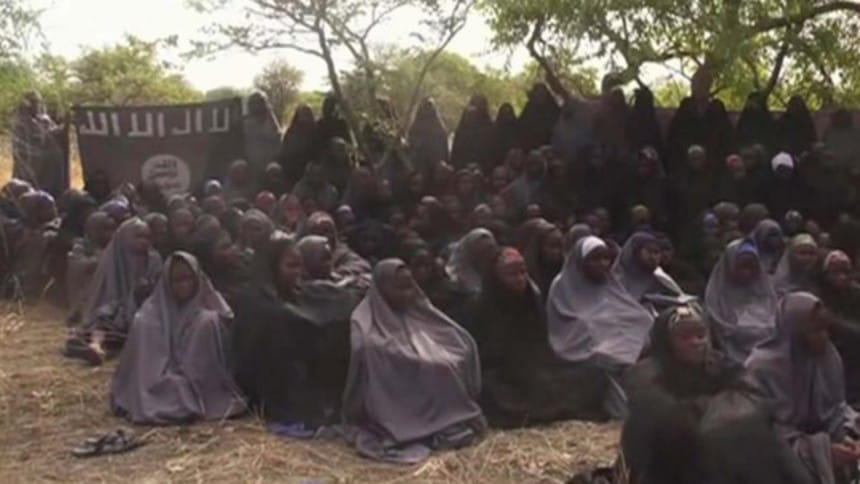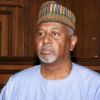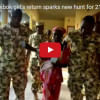More than 80 Chibok girls freed in Nigeria

Nigeria yesterday said it had negotiated the release of 82 of the more than 200 schoolgirls kidnapped by Boko Haram Islamists more than three years ago, securing their freedom in a prisoner swap deal.
The presidency announced that months of talks with the jihadists had "yielded results", just over six months after 21 of their classmates were freed with the help of international mediators.
"Today 82 more Chibok girls were released," it said.
READ ALSO: Boko Haram frees 21 Chibok girls
"After lengthy negotiations, our security agencies have taken back these girls, in exchange for some Boko Haram suspects held by the authorities."
No details were given about how many suspects were released or their identities.
The girls were to be taken to Abuja on Sunday to meet President Muhammadu Buhari, the presidency said, thanking security agencies, the Swiss government and the International Committee of the Red Cross (ICRC).
"The president has repeatedly expressed his total commitment towards ensuring the safe return of the Chibok girls and all other Boko Haram captives," it added.
A military and a civilian militia source in Banki, near the border with Cameroon, said "at least 80" girls were brought to the town late afternoon on Saturday and taken to military barracks.
READ MORE: Boko Haram shows missing Chibok girls
Shehu Sani, a Nigerian senator who has been involved in previous negotiations with Boko Haram, told AFP the girls were mostly "in good condition".
The talks lasted for "almost three to four months" and had initially discussed the release of 50 girls but the number was later increased, he said.
The government would now look to securing the release of the remaining hostages, he added.
Symbol of the conflict
Boko Haram fighters stormed the Government Girls Secondary School in the remote town of Chibok on the evening of April 14, 2014 and kidnapped 276 teenaged girls who were preparing to sit high school exams.
Fifty seven managed to escape in the hours that followed but the remaining 219 were held by the group.
Boko Haram leader Abubakar Shekau, whose fight to create a hardline Islamic state in northeast Nigeria has left at least 20,000 dead since 2009, claimed in a video message that they had converted to Islam.
The audacious kidnapping brought the insurgency to world attention, triggering global outrage that galvanised support from the former US first lady Michelle Obama and Hollywood stars.
Parents and supporters of the missing girls -- who have become a symbol of the conflict -- last month marked the three year anniversary of the abduction, describing the situation as an unending "nightmare".
But they said previous releases had given them strength.
Enoch Mark, a Christian pastor whose two daughters were among those kidnapped, said he was told of the latest release by the #BringBackOurGirls pressure group and an official in Maiduguri.
He added: "This is good news to us. We have been waiting for this day. We hope the remaining girls will soon be released."
Boko Haram has used kidnapping as a weapon of war, seizing thousands of women and children, including the Chibok girls, and forcibly recruiting young men and boys into their ranks.
In a less publicised attack in November 2014, some 300 children were among about 500 people kidnapped from the town of Damasak, on the border with Niger, in the far north of Borno state.
Most are still missing.
Ongoing talks
The release of the 21 girls in October last year followed talks between Boko Haram and the Nigerian government brokered by the ICRC and the Swiss.
Three other girls have also been found. The first had a baby and was accompanied by a man she said was her husband but the military said was a Boko Haram suspect.
Boko Haram's Shekau has previously said the girls would be released if militant fighters held in Nigerian government custody were freed.
At the time of the release of the 21, Buhari's spokesman Garba Shehu said the government was hoping to secure the release of 83 others being held by a different Boko Haram faction.
Last month he said in a radio interview that there were ongoing negotiations involving "some foreign entities" to release the 195 girls still believed held.
He told BBC Hausa the ICRC and Swiss government "have not withdrawn their support in the negotiations".
Other countries were also involved, he added, without elaborating.
The ICRC has not yet commented on the latest release.
On Friday, Britain and the United States issued a security alert warning of a Boko Haram plot to kidnap foreigners in the Banki area, which led to the suspension of aid flights to the town Saturday.

 For all latest news, follow The Daily Star's Google News channel.
For all latest news, follow The Daily Star's Google News channel. 








Comments